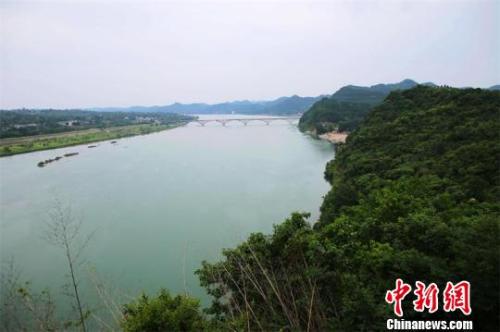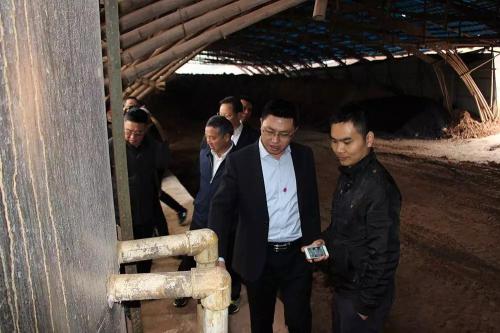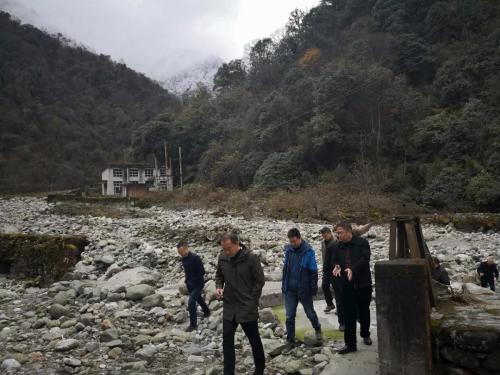CCTV News:A few days ago, the Office of the State Council Education Steering Committee issued the Interim Measures for Special Supervision of Safety Work in Primary and Secondary Schools (Kindergartens) (hereinafter referred to as the Measures). The "Measures" pointed out that the prevention and response of key issues such as drowning prevention, traffic accidents, school bullying and violence, school-related and student-related crimes, psychological and behavioral counseling and correction will be mainly supervised by relevant functional departments, primary and secondary schools.
The Measures consists of 5 chapters and 19 articles, mainly including five aspects: general principles, supervision contents, organization and implementation, application of results and supplementary provisions, which systematically designs and comprehensively stipulates the special supervision of school safety. The following is the full text of the Measures:
Office of the State Council Education Steering Committee on Printing and Distributing
"Special supervision of safety work in primary and secondary schools (kindergartens)
Notice of the Interim Measures
State religion supervision [2016] No.4
General offices of the people’s governments of all provinces, autonomous regions and municipalities directly under the Central Government:
In order to implement the general requirements of the CPC Central Committee and the State Council on ensuring school safety, promote the establishment of a scientific, standardized and institutionalized safety guarantee system and operating mechanism for primary and secondary schools (kindergartens), and improve the ability to prevent and control safety risks, the Interim Measures for Special Supervision of Safety Work for Primary and Secondary Schools (kindergartens) are formulated. Is issued to you, please seriously implement the actual.
The State Council Education Supervision Committee Office
November 30, 2016
Interim Measures for Special Supervision of Safety Work in Primary and Secondary Schools (Kindergartens)
Chapter I General Principles
the first In order to implement the general requirements of the CPC Central Committee and the State Council on strengthening school safety, and urge all localities to conscientiously do a good job in the safety management of primary and secondary schools (kindergartens) (hereinafter referred to as schools), these measures are formulated in accordance with the Regulations on Education Supervision and relevant national policies and regulations.
the second The special supervision of school safety work is an important measure to promote local governments and relevant functional departments and schools to establish a scientific, standardized and institutionalized safety guarantee system and operation mechanism, and to improve the ability of school safety risk prevention and control.
Article The State Council Education Steering Committee Office is responsible for the special supervision of provincial school safety work, and the education supervision institutions of provincial, municipal and county people’s governments are responsible for the special supervision of school safety work at the next level and within their respective jurisdictions.
Article 4 The implementation of special supervision of school safety work should adhere to the following principles:
(1) Unified leadership. Effectively strengthen organizational leadership and overall coordination, regard school safety as an important part of the comprehensive management of public safety and social security, and conduct regular supervision and inspection.
(2) Pay attention to practical results. Improve the form, content and methods of special supervision of school safety work, adjust measures to local conditions, and ensure the effectiveness of special supervision of school safety work.
(3) Openness and transparency. Adhere to the openness of standards and methods, organizations and personnel, processes and results, and actively accept social supervision.
Chapter II Supervision Contents
Article 5 Organization and management
(a) the provincial people’s government to establish and improve the organization and management system of school safety work, and urge the municipal and county governments to implement the responsibility of school safety management and supervision.
(two) the relevant functional departments to implement the funds and resources for school safety work, to carry out safety management training and guidance, and to supervise the establishment and improvement of safety management institutions, the implementation of post safety responsibilities, and the provision of security personnel.
Article 6 System construction
(a) the provincial people’s government to implement the national laws, regulations, rules and standards related to school safety work, establish and improve the governance mechanism of school safety work, formulate and improve the local school safety standard system, and carry out school safety certification.
(2) The relevant functional departments shall carry out their respective duties, make concerted efforts, improve the supervision and management of school safety work, strengthen the comprehensive management of school and surrounding safety, and establish a student safety area.
(III) The school shall establish and improve the safety management system and safety emergency response mechanism, and implement all aspects and post responsibilities of civil air defense, physical defense and technical defense construction and safety management in accordance with the requirements of the Code for Safety Prevention in Primary and Secondary Schools and Kindergartens (Trial).
Article 7 Early warning and prevention
(a) the relevant functional departments to establish a school safety early warning mechanism for the investigation and remediation of hidden dangers, and timely release the safety early warning announcement.
(two) the relevant functional departments to develop a list of school safety risks, to carry out school safety inspection and dynamic monitoring, timely analysis and evaluation of safety risks, put forward early warning information.
(three) the school to establish and implement safety education, daily management, sports, extracurricular activities, public safety incidents, school bus safety, food safety, health and epidemic prevention, natural disaster risk assessment and prevention.
Article 8 Educational drills
(a) the education department in accordance with the "guidelines for public safety education in primary and secondary schools" to guide schools to strengthen safety education, implement safety education into the classroom, and ensure the funds, teaching resources and teachers required for safety education.
(two) the relevant functional departments to guide and participate in school safety education, to carry out security activities into the campus.
(3) The school conducts safety education in accordance with the Guidelines for Emergency Evacuation Exercises in Kindergartens in Primary and Secondary Schools, and regularly organizes emergency evacuation drills such as earthquakes and fires.
Ninth key governance
(a) the relevant functional departments to strengthen the prevention and response to key issues such as drowning, accidents, student bullying and violence, timely make special reports and statistical analysis, and guide the school to perform its education and management duties.
(two) the education department in conjunction with the public security departments in a timely manner to crack down on illegal and criminal acts involving the safety of schools and students, maintain the normal order of education and teaching, and build a safe campus.
(three) education departments and schools to improve the protection system for the rights of underage students, to prevent, investigate and deal with incidents that infringe on the physical and mental health of underage students, and to carry out psychological and behavioral counseling and correction activities.
Article 10 Accident handling
(a) the provincial people’s government to establish and improve the school safety accident response, handling and accountability mechanism.
(two) the relevant functional departments timely organize the implementation of rescue, the implementation of accident investigation, responsibility identification and after-care treatment, and investigate the administrative and criminal responsibilities of the accident-related units and responsible persons.
(three) the education department and the school properly handle the disputes over safety accidents and maintain the normal education and teaching order of the school.
Chapter III Organization and Implementation
Article 11 Daily supervision. Give full play to the role of responsible inspectors, strengthen daily inspections, and promote the orderly work of school safety.
Article 12 Local self-examination. The provincial people’s government and relevant functional departments shall conduct self-examination according to the index system, and publicize the self-examination report on the websites of local governments and provincial education administrative departments, and submit it to the the State Council Education Steering Committee Office after the expiration of the publicity period.
Article 13 Field supervision. According to the daily supervision and local self-examination, the Office of the State Council Education Steering Committee compiled the detailed rules for the implementation of on-site supervision, randomly selected inspectors and experts to form a supervision team, randomly determined the objects of supervision, and carried out on-site supervision by listening to reports, consulting materials, focusing on inspections, random checks and individual interviews.
Article 14 Publish a report. The State Council education steering committee office according to the provinces (autonomous regions and municipalities) self-evaluation and field supervision results, the formation of special supervision opinions and supervision reports, supervision reports released to the public.
Article 15 Rectification and implementation. The supervised provinces (autonomous regions and municipalities) shall actively carry out rectification according to the rectification requirements and suggestions after receiving the supervision opinions of the supervision team, and report the rectification in writing to the the State Council Education Steering Committee Office within 3 months. Major safety hazards that need immediate rectification shall be reported to the the State Council Education Steering Committee Office within one month.
Chapter IV Application of Results
Article 16 The Office of the State Council Education Steering Committee has established a work accountability mechanism, taking the results of special supervision as an important content to evaluate the effectiveness of government education, giving informed criticism to areas where the responsibilities are not in place, and accountability to areas where school safety work is ineffective or there are serious problems.
Article 17 To investigate and deal with the serious accidents of school safety responsibility, serious violations of law, discipline and rules in school safety work, in accordance with laws, regulations and relevant regulations. Clues about violations of discipline are handed over to the discipline inspection and supervision organs for investigation, and the responsibilities of relevant units and responsible persons are seriously investigated. Suspected of a crime, transferred to judicial organs for handling according to law.
Chapter V Supplementary Provisions
Article 18 The provincial people’s government shall, in accordance with these measures, formulate the implementation plan for the special supervision of school safety work in this province.
Article 19 These Measures shall come into force as of the date of promulgation.


